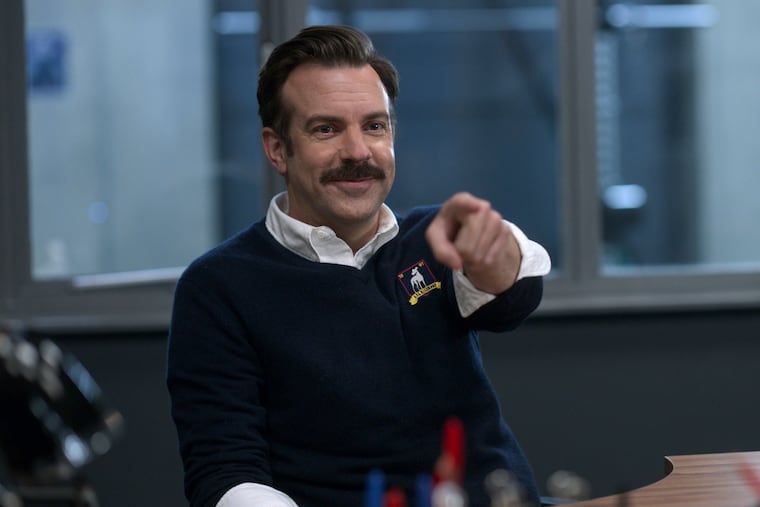Earning my patients’ trust, the Ted Lasso way | Expert Opinion
“Be curious, not judgmental,” is a Ted Lasso phrase this doctor has tried to embody.

When walking into a doctor’s office, how can patients really know whether they can trust their doctor?
This question has been sitting with me lately, especially given all the unvaccinated patients I have met in my dermatology practice. I ask all my patients whether they’ve been vaccinated. If they say no, I try to persuade them to consider it because I strongly feel that vaccination is a necessity. But before I can be an adviser who will be listened to, I first need to earn their trust.
Thinking about trust, recently I’ve been a fan of Apple TV’s Ted Lasso, the hilarious and uplifting fish-out-of-water series about an American college football coach from Kansas recruited to lead a struggling British soccer club. Jason Sudeikis, who plays Lasso, embodies the ideal coach, one who demonstrates empathy, compassion, ingenuity, and trust. (Full disclosure: as a fellow native Kansan, I went to middle school with Sudeikis’ sister, and years ago met him several times at University of Kansas basketball fan gatherings in New York.)
Other doctors have recognized how Lasso’s leadership and connection to his team could serve as a model for physicians. Mark Shapiro, a hospitalist who leads a medical career-focused podcast, even started a series of episodes that he calls “MedLasso.”
To me, one particular Ted Lasso quote, shared in the first season finale, encapsulates his power: “Be curious, not judgmental.” It’s a phrase I’ve since told myself over and over again, even as I often fail to adhere to it, as a doctor and as a human being who may have different opinions from other people.
In my office, when I see a patient making what I perceive as misinformed choices, or even touting what might be conspiracy theories, I could easily pass judgment. But that serves no one. Who can respect anyone who doesn’t respect them?
Surely, if I tame a previously unsolvable problem or catch an unrecognized skin cancer, that shows I’m competent. But trust is more complicated than that, and each patient is different.
Most visits boil down to two central questions: (1) What is the problem? And (2) What can we do about it? Some patients don’t care what the name of their problem is, they just want it gone or under control. Other patients only want to know the name of their problem or to be reassured it isn’t dangerous, yet don’t want any prescriptions or treatment. It’s up to me to recognize each individual patient’s needs, while still looking out for anything the patient might not be appropriately concerned about.
In dermatology, patients often are both literally and figuratively naked. Trust is earned by respecting that vulnerability, by showing appreciation that they are willing to let their guard down and ask for help without being judged. The question remains: Can I live up to and exceed their expectations? Will I show myself worthy of their respect and trust?
Trust is earned, no matter who you are. No matter what degrees sit behind my name, no matter whether I use the important doctor title or not, no one should presume that expert status means automatic respect and deference.
Ted Lasso doesn’t presume his players will just follow what he says. He tries to be curious and not judgmental. And lately, I’ve used my own Lasso-inspired phrase with patients that I think captures the approach I aspire to: “I hope I can earn your trust.”
When I say this phrase to a patient, what I hope to convey is that I do not presume to have the person’s trust unearned. My goal is to demonstrate my competence, credibility, and advocacy to merit such trust, and to make clear that trust is one of the most important values one should have in a physician.
Doctors must be willing to both validate feelings and listen and also provide facts and figures, but only when appropriate, because those book smarts don’t help if you haven’t shown your street smarts and bedside manner first.
As I continue to look out for my patients and encourage everyone to get vaccinated and boosted against COVID-19, I hope to remain humble, to remain curious, and to earn my patients’ trust.
Jules Lipoff is an assistant professor of dermatology at the University of Pennsylvania Perelman School of Medicine.